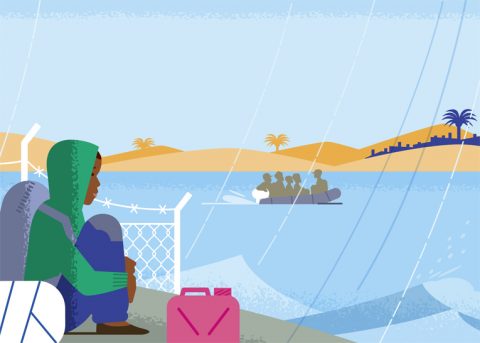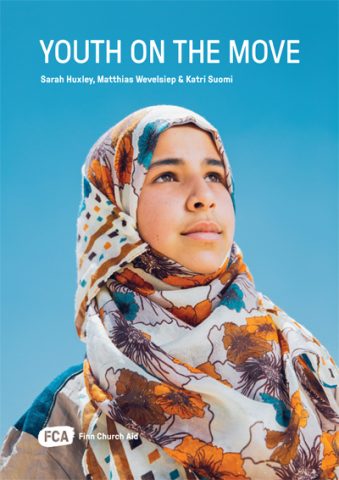Youth Means 1.8 Billion Possibilities – ‘Youth on the Move’ Shakes Attitudes
Young people living in fragile conditions are not currently being taken into sufficient account in the field of humanitarian work and development cooperation. According to Youth on the Move, a report published by Finn Church Aid on 26 April, young people often tend to slip through the various forms of work and funding. Nevertheless, youth on the move are dynamic actors having enormous potential as builders of their own lives and societies.
“Civil society organisations should listen to young people more and reform their work to take better account of youth,” says Matthias Wevelsiep, Development Manager at the FCA.
“Currently, development cooperation, humanitarian aid and other such areas of work are unable to respond properly especially to the needs of Youth on the Move.”
There are about 1.8 billion people between the ages of 15 and 24 in the world today. Youth represent a large share of the population especially in countries with a great deal of poverty and uncertainty. Nine out of ten young people live in the developing countries. Young people also move increasingly from one place to another. In fact, 10 percent of the world’s refugees are 15 to 24 years of age.
Youth are on the move in more ways than one, moving from childhood into adulthood and through education and training to the job market. They also move in terms of geography either voluntarily or forced.
Refugee youth also have the right to education and livelihood
Through the report, the FCA wishes to foreground youth as active builders of their own future and the future of their communities and as enablers of change.
Especially in fragile situations, the transition of youth from one phase of life to another is interrupted and they may have to wait even for a long time to get on with their lives. Many of the youth living in difficult situations have to work in the grey economy in order to get by.
“We should be supporting young people’s access to education and training, offering them opportunities to continue with interrupted schooling,” says Wevelsiep.
“For example, youth in refugee camps should also be offered diplomas that make them eligible for further studies and employment both in their countries of residence and their countries of origin.”

“Before training, I had nothing”
Providing vocational training in the developing countries is of the greatest importance in terms of youth and refugee policies, as well as national security.
“In Uganda, we are arranging vocational and entrepreneur training for local and refugee youth,” says Wevelsiep. “Up to 73 percent of the young people who have completed their training either have found employment or have established businesses of their own.”
“Before training, I thought I didn’t have anything unique of my own. I was just like all the other girls. Now after training, I know how to do something not everybody else does,” says Daphe Nantesa, a 17-year-old from Uganda, who participated in hairdresser training provided by the FCA.
FCA arranges entrepreneur training in Jordan for Syrian refugees and local Jordanian youth. Meanwhile, at the refugee camps in Za’atari and Azraq, the FCA also offers recreational activities, such as English lessons, a circus school and soccer.
Youth between the ages of 18 and 24 in unstable situations need protection as well. They are no longer covered by child protection measures, but they have a high risk of becoming victims of abuse, violence or neglect.
Nevertheless, the FCA report insists that we should not focus merely on the problems of youth.
In the words of Matthias Wevelsiep, “The potential of youth for active and dynamic action should be recognised and they should be empowered to participate in societal decision making and building the future.”
